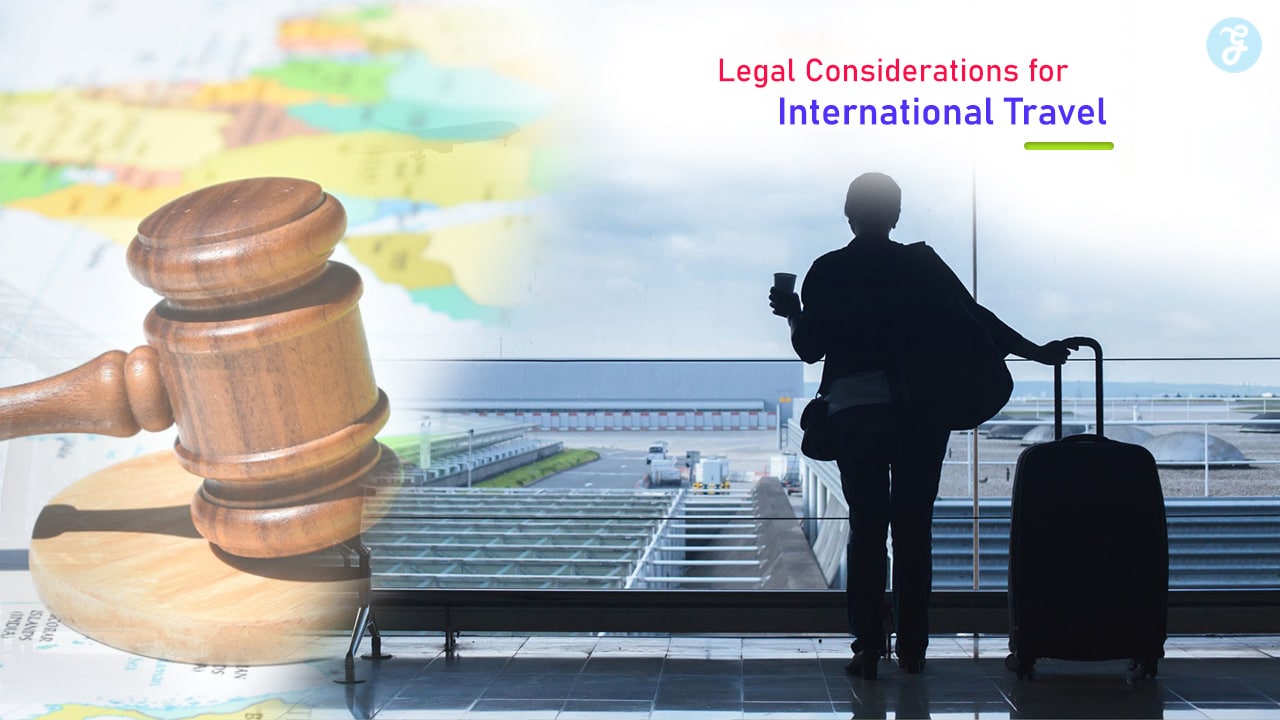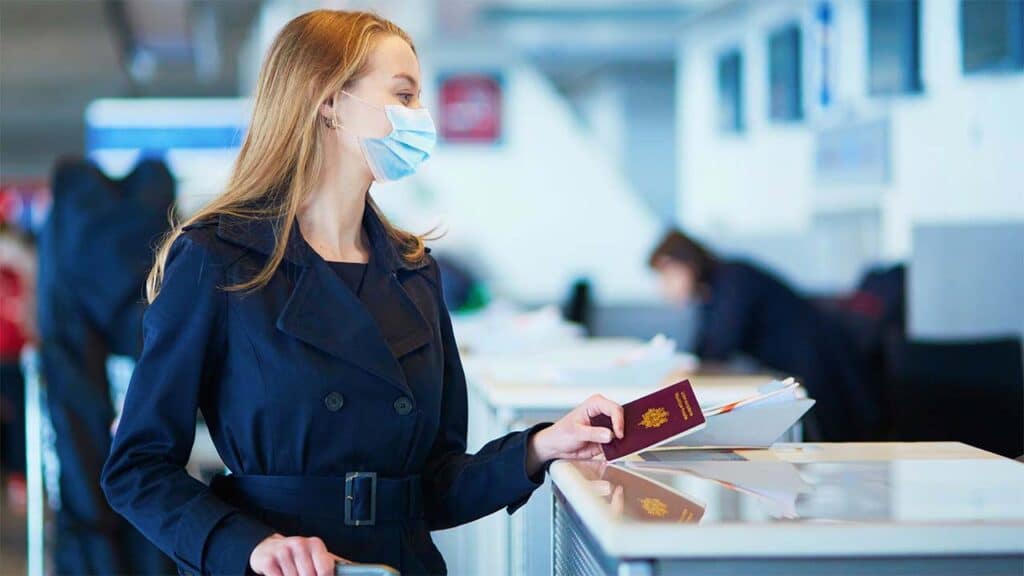International travel can be a thrilling experience, offering opportunities to explore new cultures, foods, and landscapes. However, without the proper legal preparations, an exciting trip can quickly turn into a stressful situation.
From visa requirements to health regulations, there are numerous legal aspects that travelers must consider before embarking on their journey.
In this comprehensive guide, we’ll delve into nine essential legal considerations to help ensure that your trip goes smoothly and without unnecessary legal hassles.
International travel involves more than just booking flights and accommodations. It requires an understanding of the legal frameworks that govern travel between countries.
Whether you’re a first-time traveler or a seasoned jet-setter, being informed about the legal implications can save you time, money, and stress. This article will cover everything from visas and customs regulations to health requirements and local laws, giving you the tools to travel safely and legally.
Why Legal Preparations Matter for International Travel?
Traveling internationally requires more than simply packing your bags and heading to the airport. Each country has its own set of rules, regulations, and laws that govern entry, stay, and departure.
Ignoring or misunderstanding these rules can result in penalties, deportation, or even imprisonment. That’s why legal preparedness is essential for a safe and successful journey.
Before we dive into the specific legal considerations, it’s crucial to understand that legal preparedness encompasses understanding local laws, securing proper documentation, and complying with international travel protocols.
1. Visa and Entry Requirements
Visa requirements are one of the first legal considerations for international travel. Every country has different entry requirements, and failing to comply with them can result in being denied entry at the border.
Some countries offer visa-free entry for tourists from certain nations, while others require a visa that must be obtained before arrival.
Before traveling, research the visa policies of the country you’re visiting. You’ll need to determine whether you can apply for a visa upon arrival or if you must secure it in advance. Some visas are electronic, while others require a visit to the consulate or embassy. Additionally, certain countries require travelers to provide proof of onward travel or sufficient funds for their stay.
Types of Visas and Entry Permits
There are various types of visas, including tourist, work, student, and business visas. Each visa type comes with specific rules regarding the length of stay and activities permitted while in the country.
Overstaying your visa or violating the conditions of your visa can result in fines, deportation, or future bans on entry. Be sure to understand the restrictions and follow them to avoid legal troubles during your stay.
2. Customs and Import/Export Laws
When crossing international borders, customs regulations dictate what items you can bring into or take out of a country.
Failure to comply with these regulations can result in fines, confiscation of goods, or even criminal charges. Customs regulations vary by country, so it’s essential to familiarize yourself with the specific rules of the nation you’re visiting.
Commonly restricted items include food products, plants, animals, and large sums of cash. Additionally, many countries have strict rules regarding the import and export of cultural artifacts, weapons, and narcotics.
Even over-the-counter medications that are legal in your home country may be prohibited in another.
How to Declare Items at Customs
When arriving in a new country, travelers are often required to fill out customs declaration forms. Be honest when declaring items such as expensive electronics, gifts, or large amounts of cash.
Failing to declare restricted items can lead to serious legal consequences. Many airports and border crossings now have “green” and “red” channels to distinguish between travelers with items to declare and those without.
Understanding and complying with these systems will help you avoid delays and penalties.
3. Health and Vaccination Requirements
Health is another key legal consideration for international travel. Many countries require travelers to provide proof of vaccinations against diseases such as yellow fever, hepatitis, or COVID-19. These regulations aim to prevent the spread of infectious diseases and protect public health.
Failure to comply with vaccination requirements can result in being denied entry into a country or being quarantined upon arrival.
It’s important to check the vaccination requirements of your destination well in advance, as some vaccines require multiple doses or take time to become fully effective.
Carrying Necessary Medical Documentation
In addition to vaccines, you may need to carry other medical documentation, such as proof of negative COVID-19 tests or a certificate of fitness to travel if you have certain medical conditions. Always carry these documents with your passport to present at border controls if requested.
Additionally, if you need to bring prescription medication with you, check the country’s regulations on controlled substances. You may need to carry a doctor’s note or a prescription to avoid issues with customs.
4. Travel Insurance and Medical Coverage
Travel insurance is a critical component of legal preparedness for international travel. While many people focus on the coverage for lost baggage or flight cancellations, medical travel insurance is equally important.
Healthcare systems vary significantly from country to country, and many nations do not provide free healthcare to foreigners. Without adequate medical coverage, you could be facing significant expenses if you require medical treatment abroad.
There are different types of travel insurance policies, including basic coverage for emergencies and comprehensive plans that cover a range of situations like trip cancellations, theft, and evacuation.
Be sure to understand the limitations and exclusions of your insurance policy. For instance, some policies may not cover high-risk activities like scuba diving or skiing, so consider your itinerary when choosing a plan.
Legal Issues Related to Medical Coverage
In some countries, proof of medical insurance is a requirement for obtaining a visa or even entering the country. Additionally, some nations require visitors to pay for medical treatment upfront, even in emergencies, so it’s essential to know how your insurance works in these situations.
If you are uninsured or underinsured, you could face significant legal and financial challenges in the event of an illness or accident.
5. Understanding Local Laws
One of the most important aspects of international travel is understanding and respecting the local laws of the country you’re visiting.
Laws can vary significantly between nations, and actions that are perfectly legal in your home country may be illegal elsewhere. Ignorance of the law is not a valid defense, so it’s critical to do your research before you travel.
Common legal pitfalls include differences in laws related to alcohol consumption, public behavior, drug use, and even dress codes.
For example, certain countries in the Middle East have strict regulations on alcohol, public displays of affection, and women’s attire. Violating these laws can lead to fines, imprisonment, or deportation.
How to Research Local Laws Before Traveling
Before traveling to a new country, spend time researching the local laws and customs. Government websites, travel forums, and official tourism websites often provide valuable information about local regulations.
Additionally, if you’re traveling for work or business, make sure you understand the specific regulations that govern business activities, such as taxation and licensing, in your destination country.
6. Driving and Transportation Regulations
If you plan to rent a car or drive while traveling internationally, it’s essential to understand the local driving laws and regulations. Some countries require an International Driving Permit (IDP) in addition to your home country’s driver’s license, while others may accept your standard license for short-term stays.
Driving laws can also differ widely between countries, including speed limits, seatbelt requirements, and rules of the road.
In some nations, driving is on the opposite side of the road than what you may be used to, and traffic signals may differ from those in your home country.
Insurance and Legal Obligations for Drivers
Make sure to review the insurance options the rental agency is offering when renting a car abroad. Basic insurance may not cover accidents or damage, so it’s wise to invest in comprehensive coverage.
Additionally, if you’re involved in a traffic accident, the legal procedures can vary significantly from country to country. Make sure you understand what to do in case of an accident, including contacting local authorities and your insurance provider.
7. Currency and Financial Regulations
Traveling internationally requires you to navigate different financial systems and currencies. Many countries have strict regulations regarding the amount of cash you can bring in or out of the country.
Failing to declare large sums of money at customs can lead to confiscation, fines, or even criminal charges.
Additionally, some nations have laws restricting certain financial transactions, such as the transfer of funds between countries or the use of foreign currency.
Understanding these regulations can help you avoid legal issues and ensure that you’re able to manage your finances smoothly while traveling.
Best Practices for Handling Foreign Currency
Before traveling, familiarize yourself with the exchange rates and the best methods for obtaining local currency. It’s a good idea to notify your bank of your travel plans to avoid having your credit or debit cards blocked for suspicious activity.
In some countries, credit card fraud is a concern, so be cautious when using ATMs or unfamiliar payment systems. By understanding the financial regulations and preparing in advance, you can avoid legal issues and make the most of your travel experience.
8. Data Privacy and Digital Security
In today’s digital age, data privacy and security are increasingly important legal considerations for international travelers. Many countries have strict laws regarding the storage and transmission of personal data, and violating these laws, even unknowingly, can lead to fines or legal action.
Additionally, travelers are often at a higher risk of data theft or cyberattacks when using unsecured public Wi-Fi networks or unfamiliar devices.
To protect your personal information while traveling, use a virtual private network (VPN) to encrypt your internet traffic, avoid accessing sensitive information on public networks, and be cautious about the apps and services you use abroad.
Data privacy laws can vary significantly between countries, so it’s important to understand the legal requirements in your destination country.
Legal Implications of Data Breaches
If you’re traveling for business and handling sensitive information, it’s especially important to be aware of data privacy laws. For example, under the European Union’s General Data Protection Regulation (GDPR), companies can face significant fines for mishandling personal data, even if the violation occurs abroad.
By taking proactive steps to secure your data, you can minimize the risk of legal issues and protect your privacy while traveling.
9. Emergency Contacts and Consular Services
Even with careful planning, emergencies can happen while traveling abroad. Whether it’s a legal issue, a medical emergency, or a lost passport, knowing how to access consular services can be a lifesaver.
Most countries have embassies or consulates that provide assistance to travelers in distress. These services can help you navigate legal issues, contact local authorities, or arrange for emergency evacuation.
In addition to consular services, it’s important to have the contact information for local emergency services, such as the police, ambulance, and fire departments. Familiarize yourself with these numbers before you arrive, and keep them easily accessible during your trip.
How to Access Legal Assistance Abroad
If you find yourself in legal trouble while traveling, contact your country’s consulate or embassy immediately. They can provide you with a list of local attorneys, assist in contacting your family, and help you understand your legal rights.
However, it’s important to remember that consular services cannot intervene in legal proceedings or get you out of jail. Understanding the legal system of your destination country and preparing in advance can help you avoid legal pitfalls and ensure a smooth trip.
Conclusion
International travel is an exciting and rewarding experience, but it comes with legal responsibilities that should not be overlooked.
From securing the appropriate visas and understanding local laws to protecting your health and financial assets, proper legal preparation can make all the difference in ensuring a smooth and enjoyable journey.
By considering these nine essential legal factors before you travel, you can avoid potential pitfalls, stay safe, and enjoy your time abroad with confidence.
Whether you’re embarking on a short vacation or a long-term stay, being legally prepared is the key to a stress-free and fulfilling international travel experience.







































